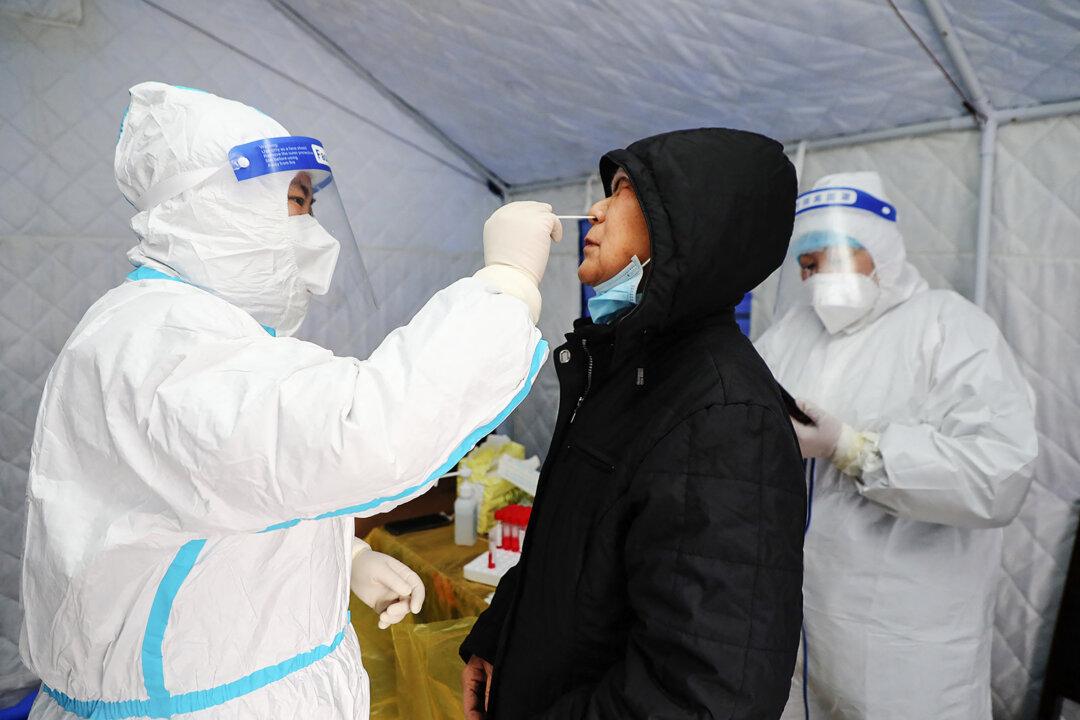The Chinese authorities on Dec. 14 reported its second case of the Omicron variant in a 67-year-old man who tested positive after more than two weeks of quarantine.
The infected person, who lives in the southern city of Guangzhou, returned to China on Nov. 27, according to the Guangzhou Municipal Health Commission.




